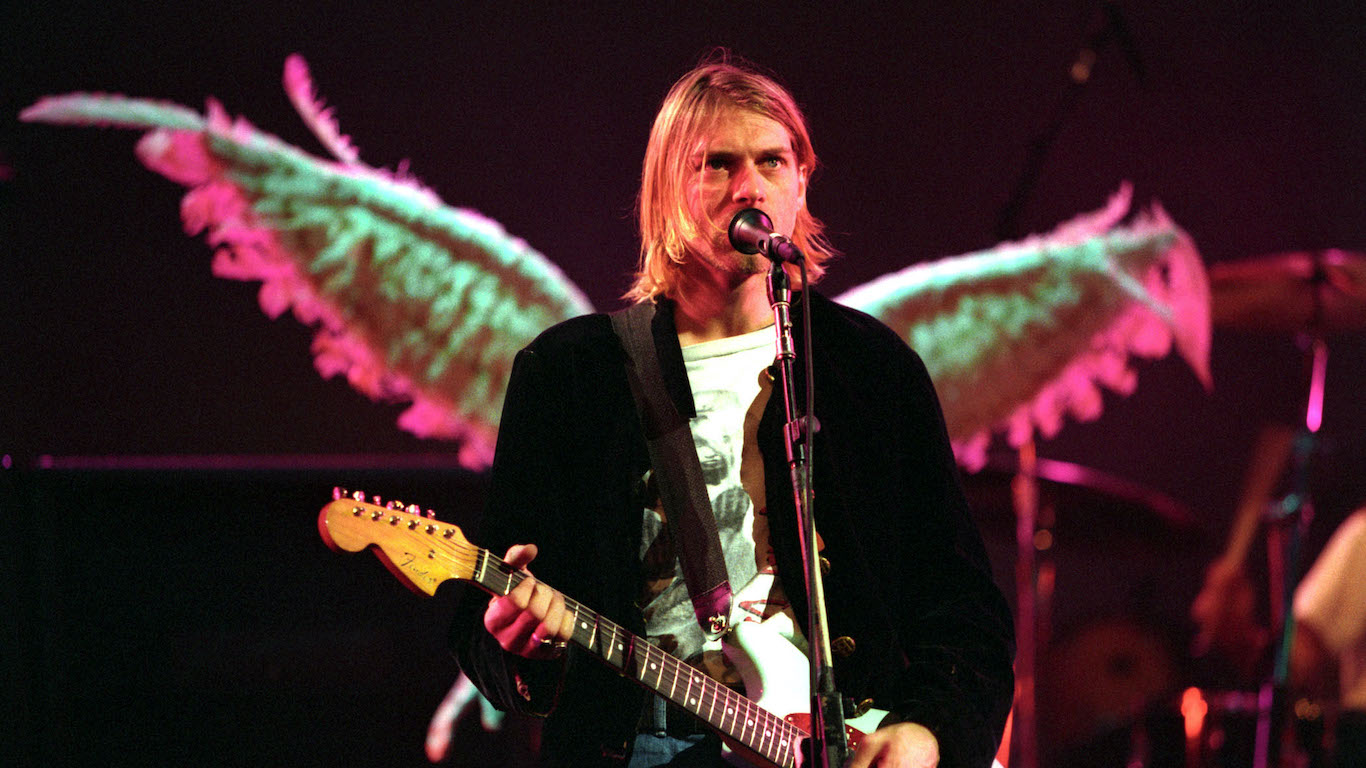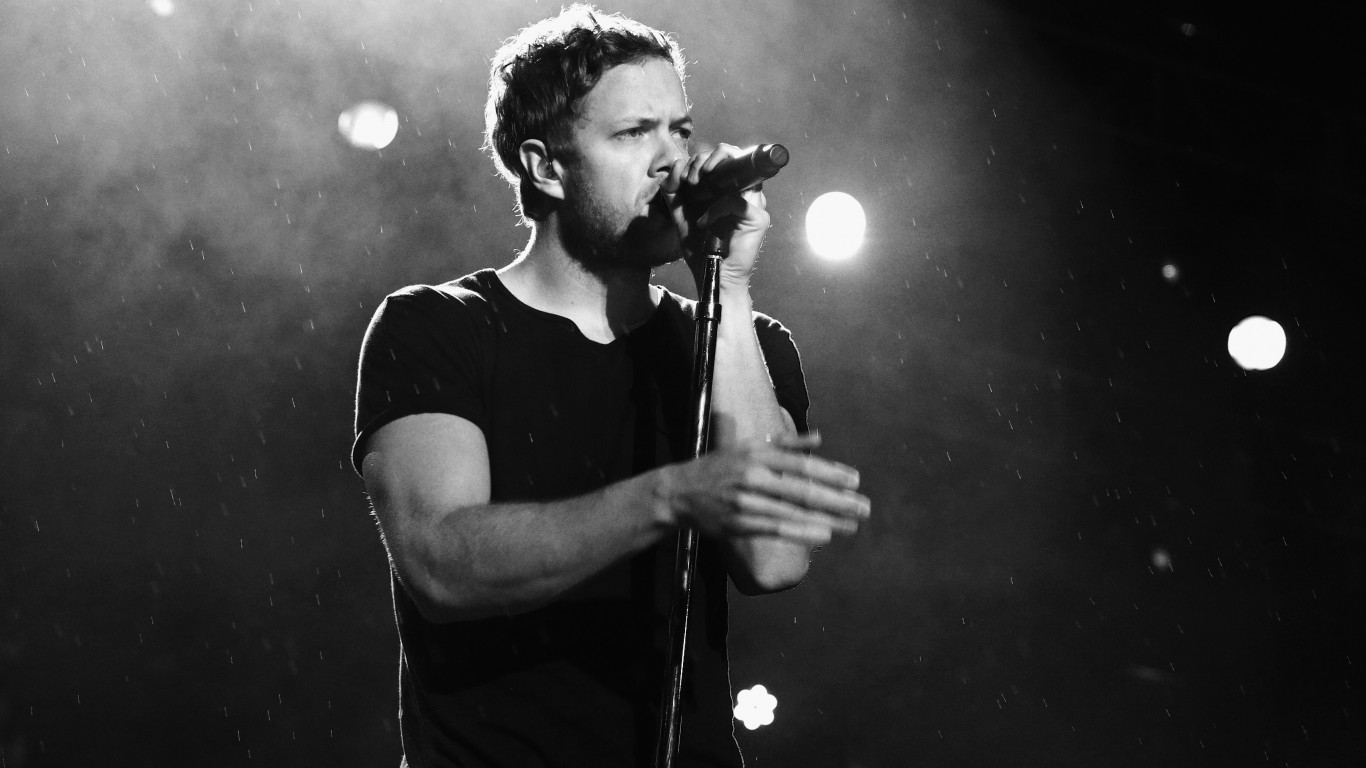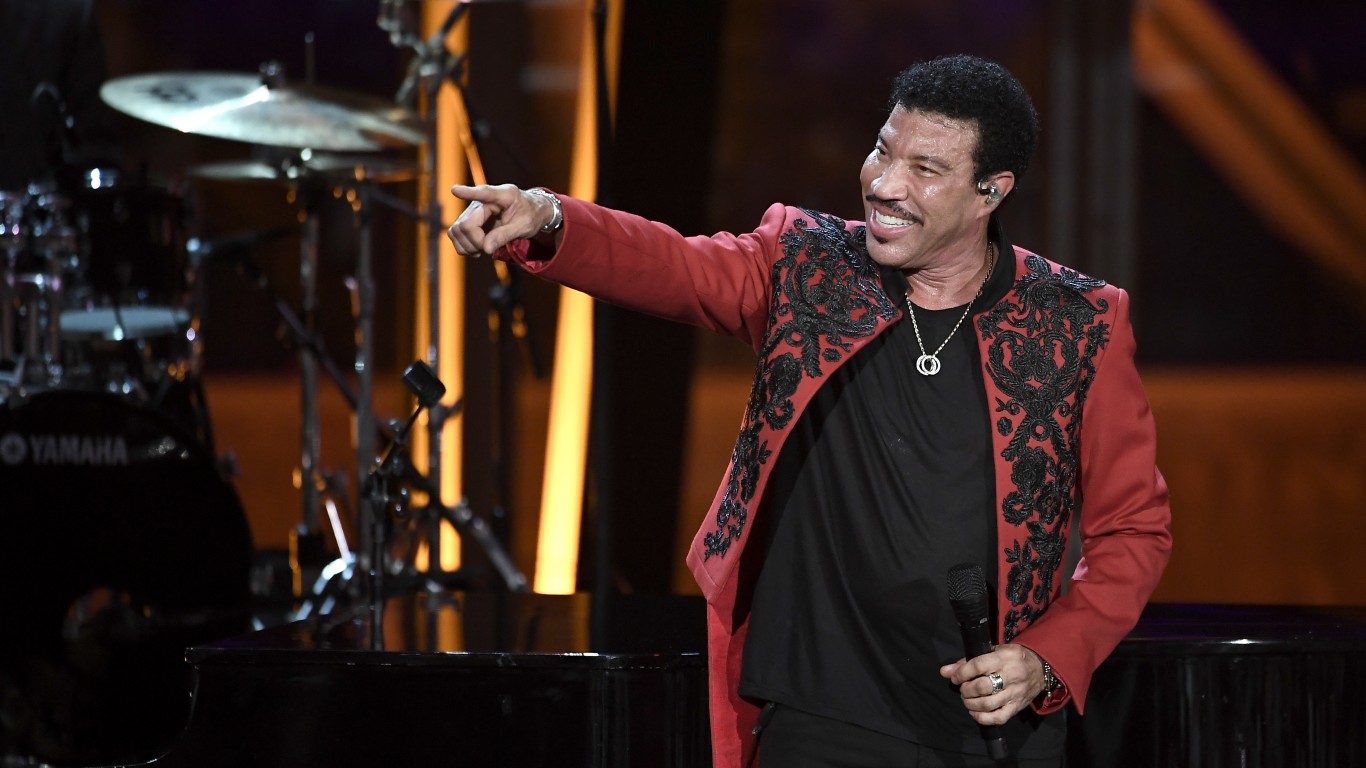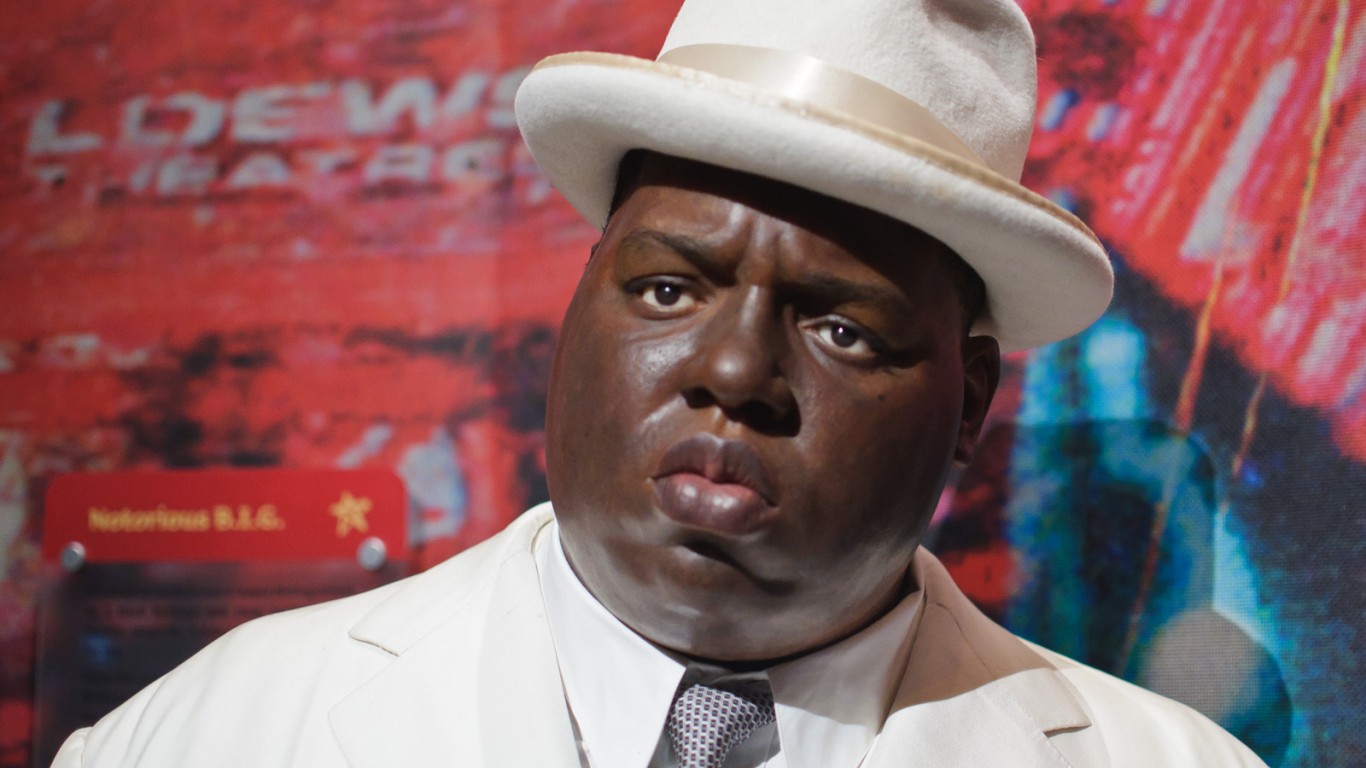
“He Died Before He Got Old.” That was the headline in the Village Voice announcing the drug-related demise, at the age of 32, of Keith Moon, the original drummer with The Who. The headline, of course, was a reference to the line sung by Roger Daltrey in the group’s 1965 rock classic “My Generation” — “I hope I die before I get old.”
Throughout the years, many musicians — rock and otherwise — have died too early. A depressingly large number of them, including such giants as Charlie Parker, Jimi Hendrix, and Janis Joplin, succumbed to drugs.
Many more were killed in car or plane crashes, or were taken down by cancer, heart attack, or other health-related issues. Some committed suicide. (On a happier note, here are 35 rock stars who are now 75 or older.)
Some musicians, however, have met their ends for a reason neither medical, accidental, nor self-imposed: They were murdered.
Some of music’s biggest stars have been shot to death — Sam Cooke, Selena, John Lennon, and Marvin Gaye among them. Numerous rap and hip-hop luminaries have died this way, too, including legends like Tupac Shakur and Christopher Wallace (better known as The Notorious B.I.G.) and, more recently, Nipsey Hussle and Pop Smoke. A 2015 study out of Australia, in fact, computed that slightly more than half the rap and hip-hop artists who had died up to that point were homicide victims.
Click here to see 30 musicians who met violent ends
Violence knows no stylistic boundaries, though. When 24/7 Tempo compiled a list of musical figures who had been murdered, the roster included classical, jazz, reggae, Latin, heavy metal, R&B, country, folk, and more. The perpetrators included jealous lovers, obsessed fans, even family members. Any violent death is a tragedy, but these robbed the world of good music as well as vibrant lives.
To assemble its list of musicians who met violent ends, 24/7 Tempo consulted “Musicians Killed by Guns: 1950-Present,” published by Digital Music News in 2016, an extensive catalogue of some 79 musician shootings, as well as shorter lists on sites including Ranker, JazzBlog, Fandom, and People, and verified details, wherever possible, though contemporary obituaries in local and national publications. A final selection of which musicians to include was made based partly on their fame or musical importance but also with a view towards representing as many musical genres as possible. Only musicians who were shot, stabbed, or otherwise slain by another person were included; those who died died by suicide or in accidents were not included.

Clarence “Pine Top” Smith
> Death: Shot in 1929
> Genre: Boogie-woogie
> Instrument: Piano
The Alabama-born Smith, who also performed as a singer and comedian, was best-known for his boogie-woogie piano artistry. He was shot to death at the age of 24 in Chicago, during a dancehall fight the night before a scheduled recording session. It is uncertain whether he was the intended victim or just an unfortunate bystander.
[in-text-ad]

Anton Webern
> Death: Shot in 1945
> Genre: Atonal and twelve-tone classical
> Instrument: Composer/conductor
Known as one of the most musically radical of early 20th-century Viennese avant-garde composers, Webern died under strange circumstances. After a family dinner in the Austrian town of Mittersill, he stepped outside to smoke a cigar. Two American soldiers arrived to arrest Webern’s son-in-law for dealing in the black market. For reasons that remain unclear, as they were leaving, one of the Americans, who had been drinking, shot the composer three times.
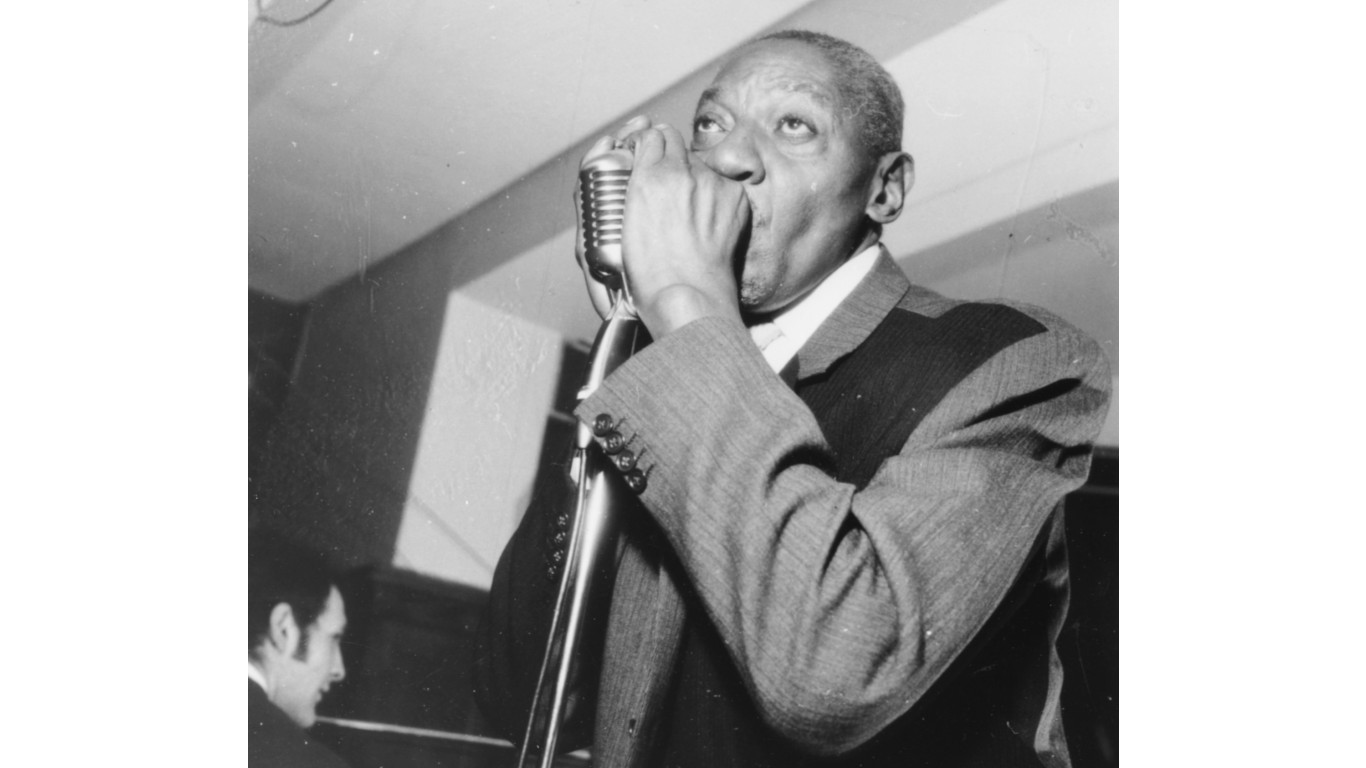
Sonny Boy Williamson I
> Death: Shot in 1948
> Genre: Blues
> Instrument: Harmonica, vocals
The blues world has known two singers and harmonica players with this name, generally distinguished as I and II. The second of these died of a heart attack at the age of 52. The original Sonny Boy wasn’t so lucky. Walking the few blocks between a club where he’d just played and his home on Chicago’s South Side, when he was mugged and shot (some sources say beaten to death).
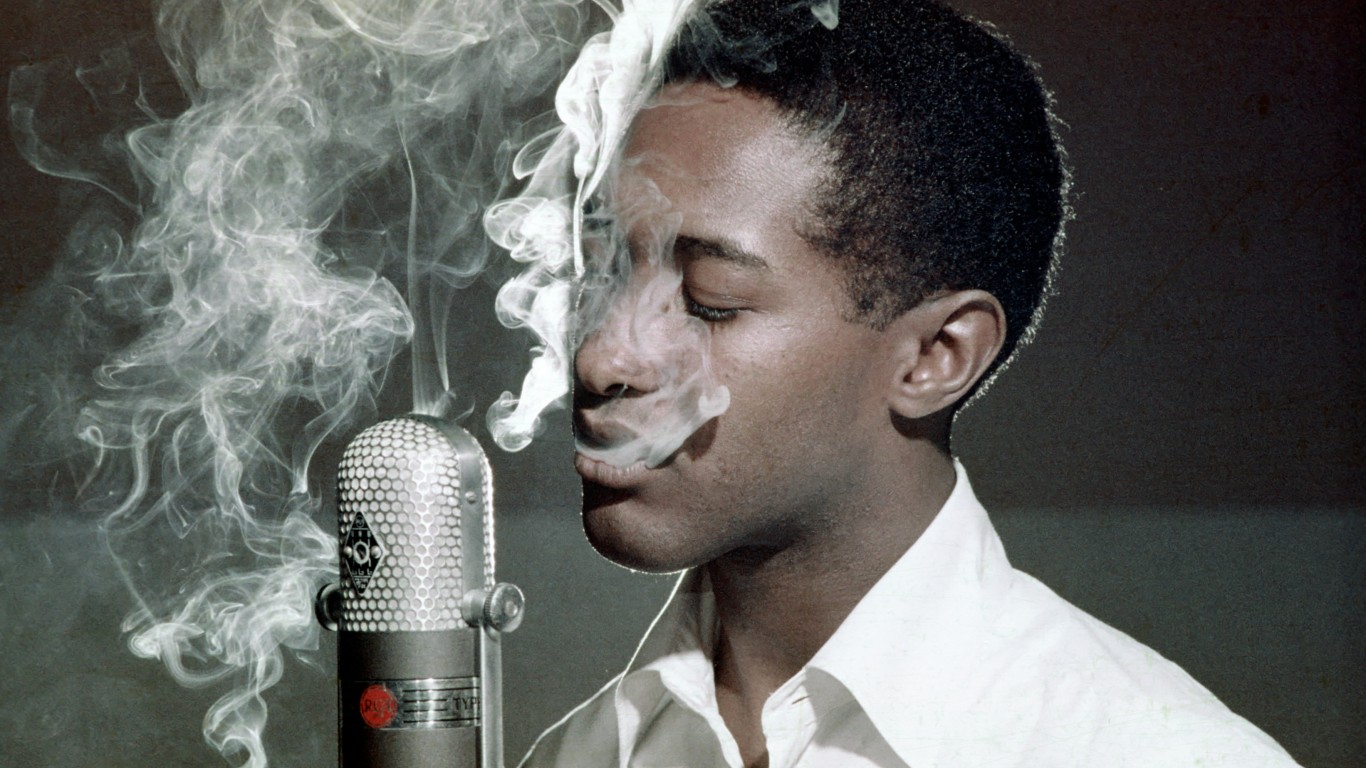
Sam Cooke
> Death: Shot in 1964
> Genre: Gospel, soul, R&B
> Instrument: Vocals
The smooth-voiced soul singer (“You Send Me,” “A Change is Gonna Come,” “Twistin’ the Night Away,” etc.) was shot by an L.A. motel manager, who said he’d attacked her. Cooke had brought a young woman to the place. According to the story she and the manager told, he had tried to rape her, she had fled, and Cooke — who had a blood alcohol level of .16 at the time of his death — had attacked the manager while looking for her. The manager fired in self-defense.
[in-text-ad-2]

Darrell Banks
> Death: Shot in 1970
> Genre: R&B, soul
> Instrument: Vocals
A promising R&B artist from Detroit, who had a hit in 1966 with “Open the Door to Your Heart,” Banks was killed by an off-duty policeman who had been seeing Banks’s girlfriend. Banks approached the couple near the woman’s home and grabbed her, saying that he wanted to talk. When the cop objected, Banks brandished a .22 pistol. The officer pulled his own gun and shot Banks.
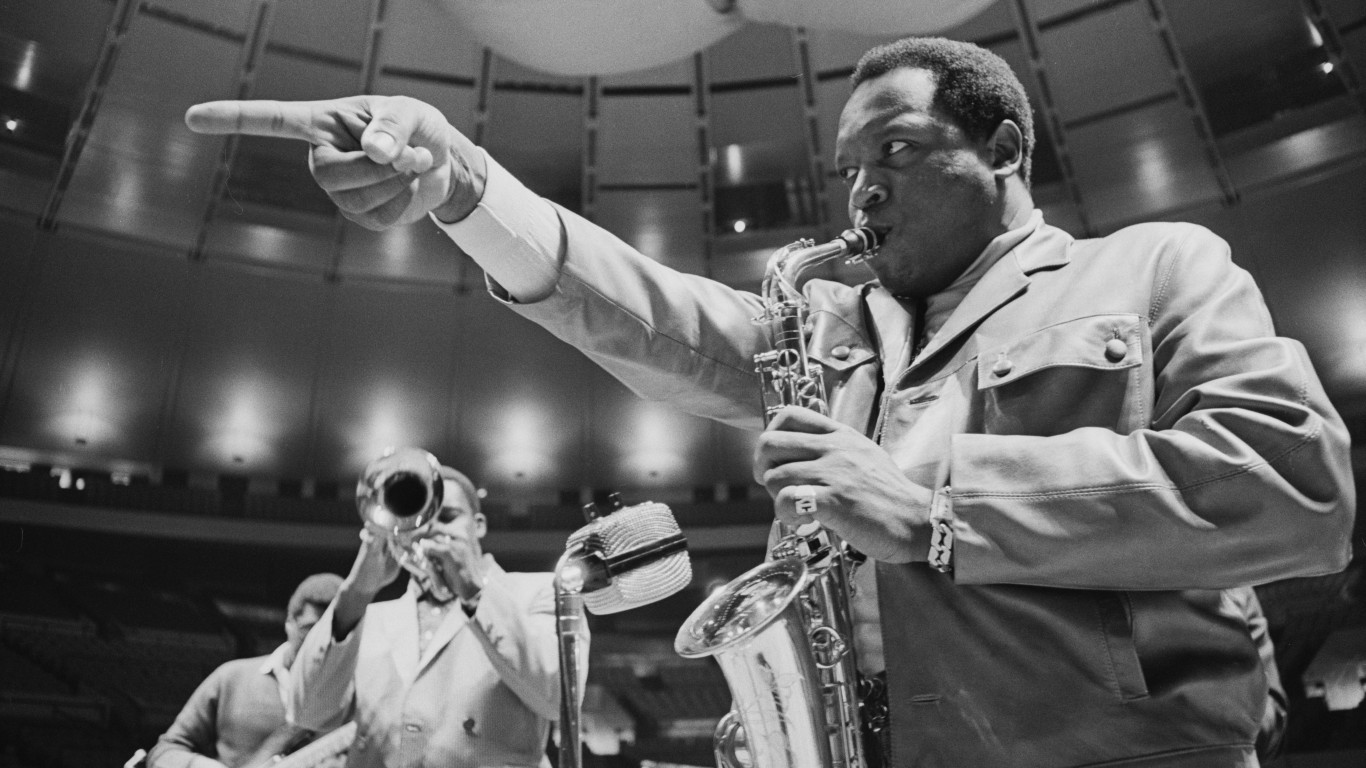
King Curtis
> Death: Stabbed in 1971
> Genre: R&B
> Instrument: Tenor saxophone
Even if you’d never heard his name, you knew his music: Besides being a respected jazz saxophonist, Curtis lent his distinctive sax sound to such hits as “Yakety Yak,” “Charlie Brown,” and “Respect.” One August night, Curtis was moving an air conditioner into his apartment, when a pair of drug dealers got in his way. In the dispute that followed, one of them stabbed him to death.
[in-text-ad]

Selena
> Death: Shot in 1995
> Genre: Tejano
> Instrument: Vocals
Selena Quintanilla-Pérez, known professionally by just her first name, was a superstar of Tejano music — a hybrid of Mexican and European-Texan influences — and was the first Latin artist to have an album peak at No. 1 on the Billboard 200 chart. She was murdered by a woman who had been hired to run her fan club and her boutiques after Selena’s family confronted the woman with evidence that she had embezzled money from both operations.
Lee Morgan
> Death: Shot in 1972
> Genre: Jazz
> Instrument: Trumpet
One of the leading lights of hard bop jazz in the late 1950s and ’60s,, this lytical trumpeter was shot by his common-law wife in a fit of jealousy in the dressing room of a club where he was performing. He might have lived, but the city was gripped by a heavy snowstorm, and the ambulance took so long to arrive that Morgan bled to death.

David “Stringbean” Akeman
> Death: Shot in 1973
> Genre: Country
> Instrument: Banjo, vocals
A mainstay of the country-themed TV variety show “Hee Haw” and of the famed Grand Ole Opry, Akeman combined music prowess with a flair for cornball comedy. Akeman and his wife, Estell, were killed by two burglars who had broken into their rural cabin looking for money and waited until the couple returned home.
[in-text-ad-2]
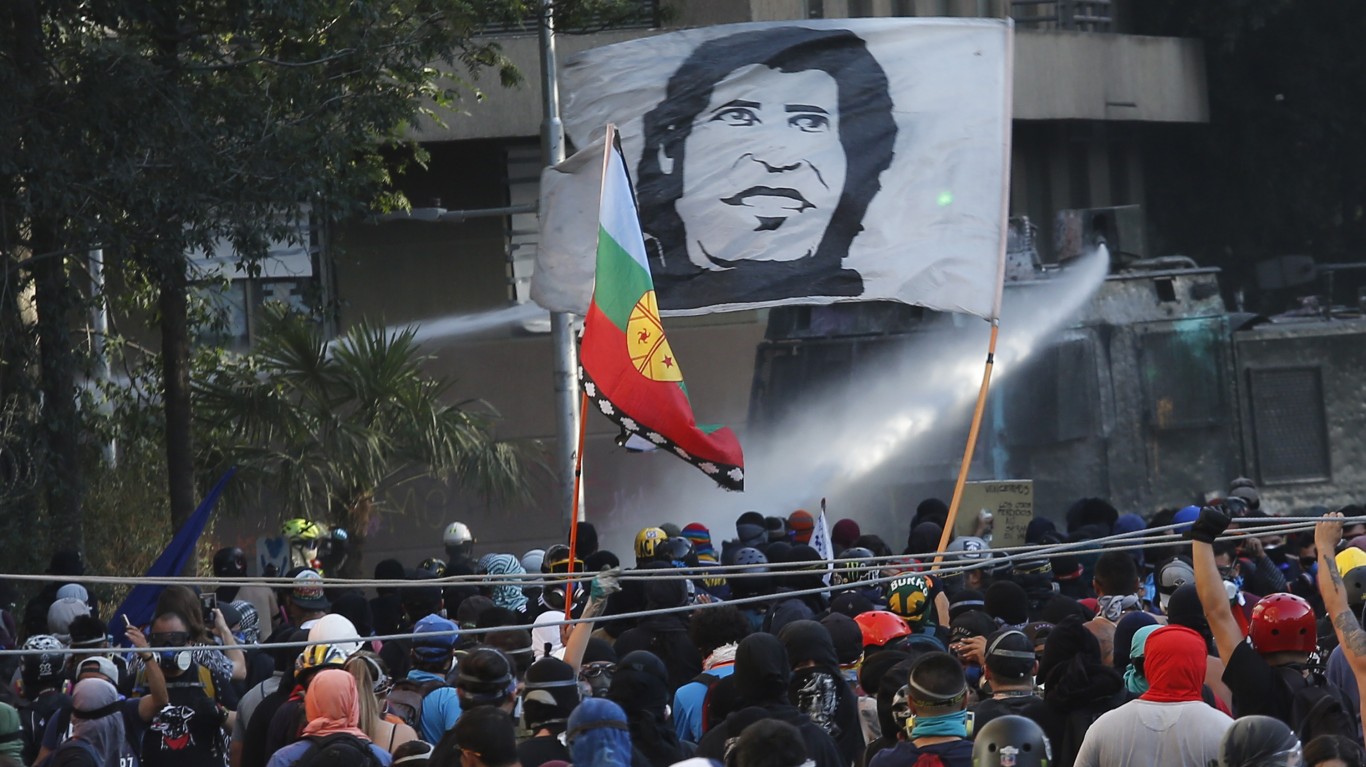
Victor Jara
> Death: Tortured and shot in 1973
> Genre: Folk, protest songs
> Instrument: Guitar, vocals
A writer of popular folk-flavored leftist protest music as well as a poet and theatre director, Jara was a founder of Chile’s Nueva Canción Chilene (New Chilean Song) movement during the tenure of the country’s Marxist president Salvador Allende. After Augusto Pinochet, with support from the CIA, overthrew Allende’s government, Jara was arrested, interrogated, and tortured. When he responded by singing a protest song, he was shot in the head. His body was thrown into the street, where it was peppered with more than 40 machine gun bullets.
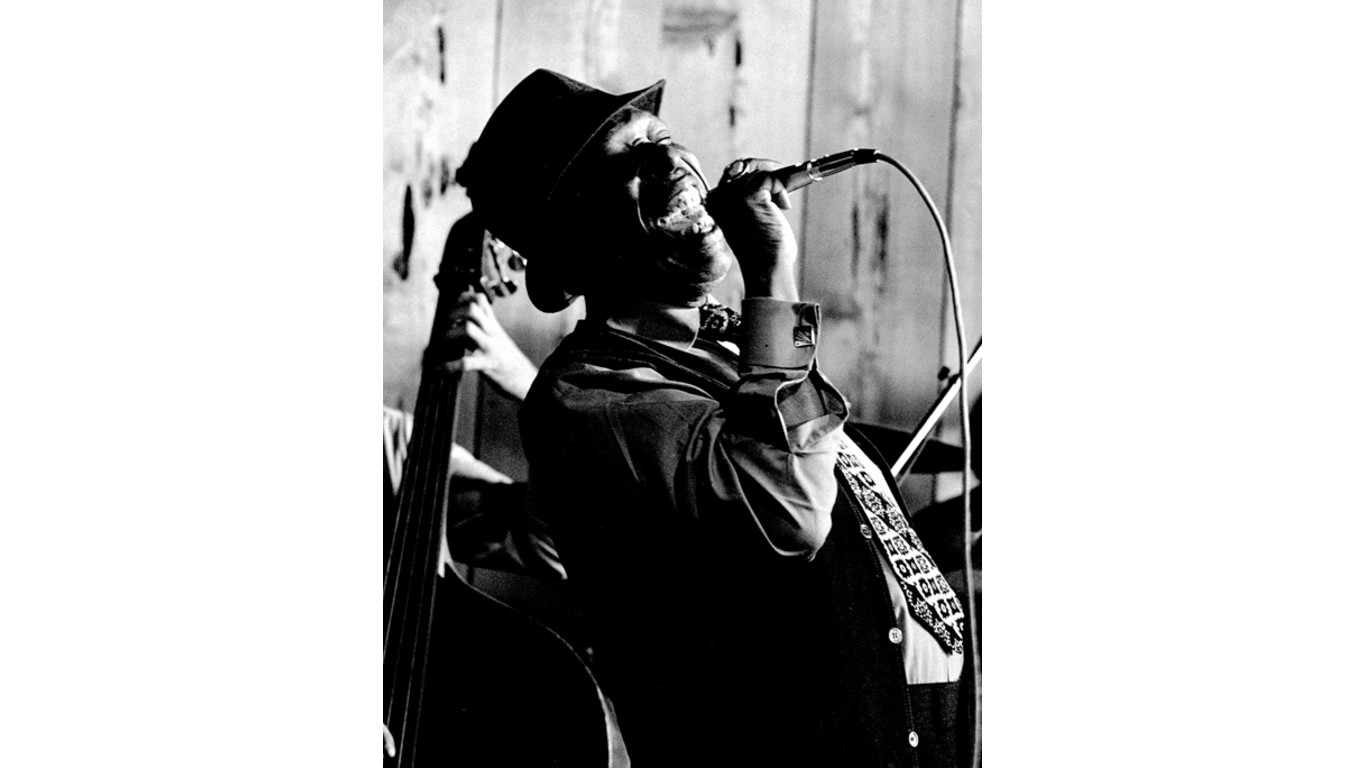
Eddie Jefferson
> Death: Shot in 1979
> Genre: Jazz
> Instrument: Vocals
A jazz singer who developed a unique genre known as vocalese, setting lyrics to jazz solos, Jefferson was the victim of a drive-by shooting as he left a jazz club in Detroit with a member of his band. Police charged an unemployed factory worker, who had once been fired as a dancer by Jefferson, with the murder, but he was acquitted.
[in-text-ad]
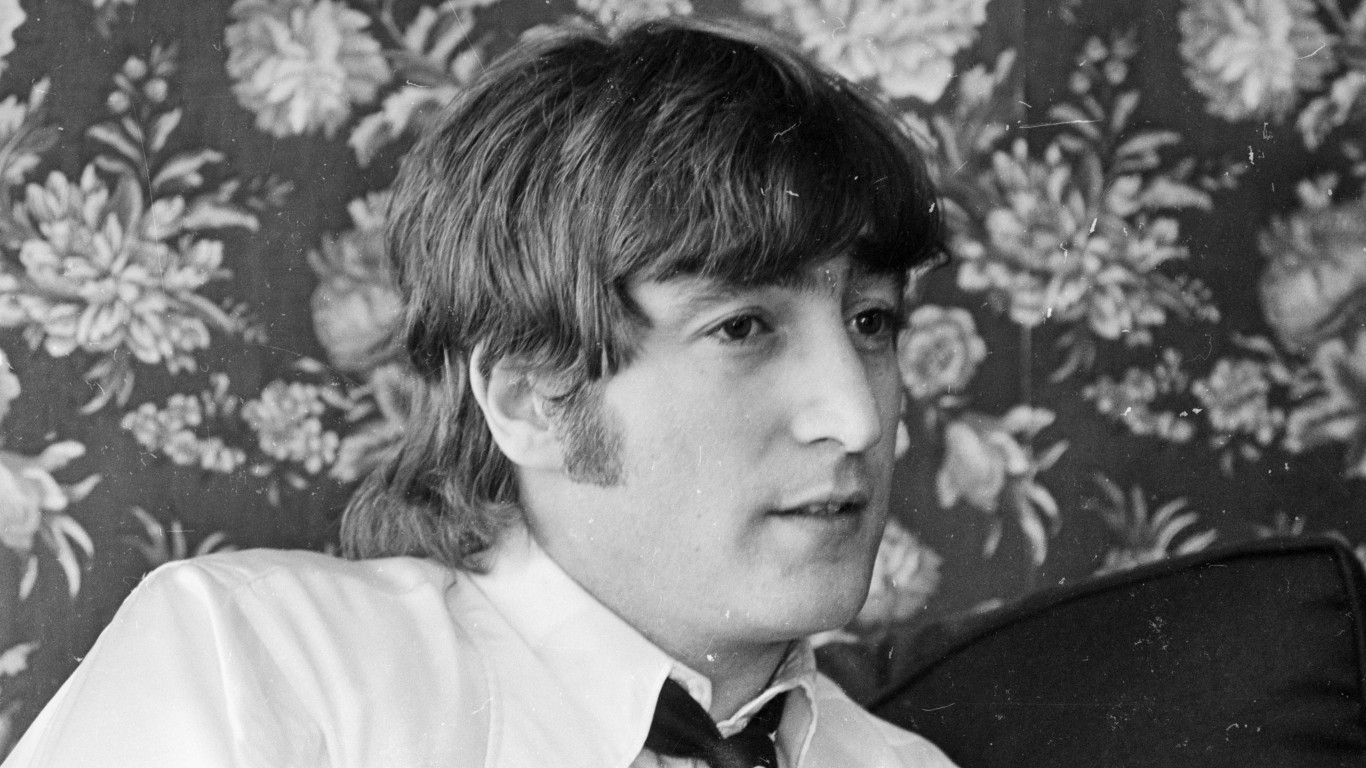
John Lennon
> Death: Shot in 1980
> Genre: Rock, pop
> Instrument: Vocals, guitar, keyboards
World-famous as co-founder of The Beatles, a prolific solo artist, an anti-war activist, and the author or co-author of some of the most enduring songs of the 20th century, Lennon was murdered outside The Dakota, the venerable Manhattan apartment building where he lived with his wife, Yoko Ono. His slayer was a deranged fan, Mark David Chapman, for whom he had autographed a copy of his album “Double Fantasy” earlier in the evening of his murder.

Felix Pappalardi, Jr.
> Death: Shot in 1983
> Genre: Rock
> Instrument: Bass, vocals
For years a prominent New York studio musician, Pappalardi is known for his work as an arranger for Cream’s “Disraeli Gears” album (he co-wrote “Strange Brew”) and as bassist and singer for Mountain — whose hit “Mississippi Queen” became a classic rock standard. His wife, songwriter Gail Collins, shot him in their apartment with a derringer he had given her as a gift, after he confessed to having an affair.
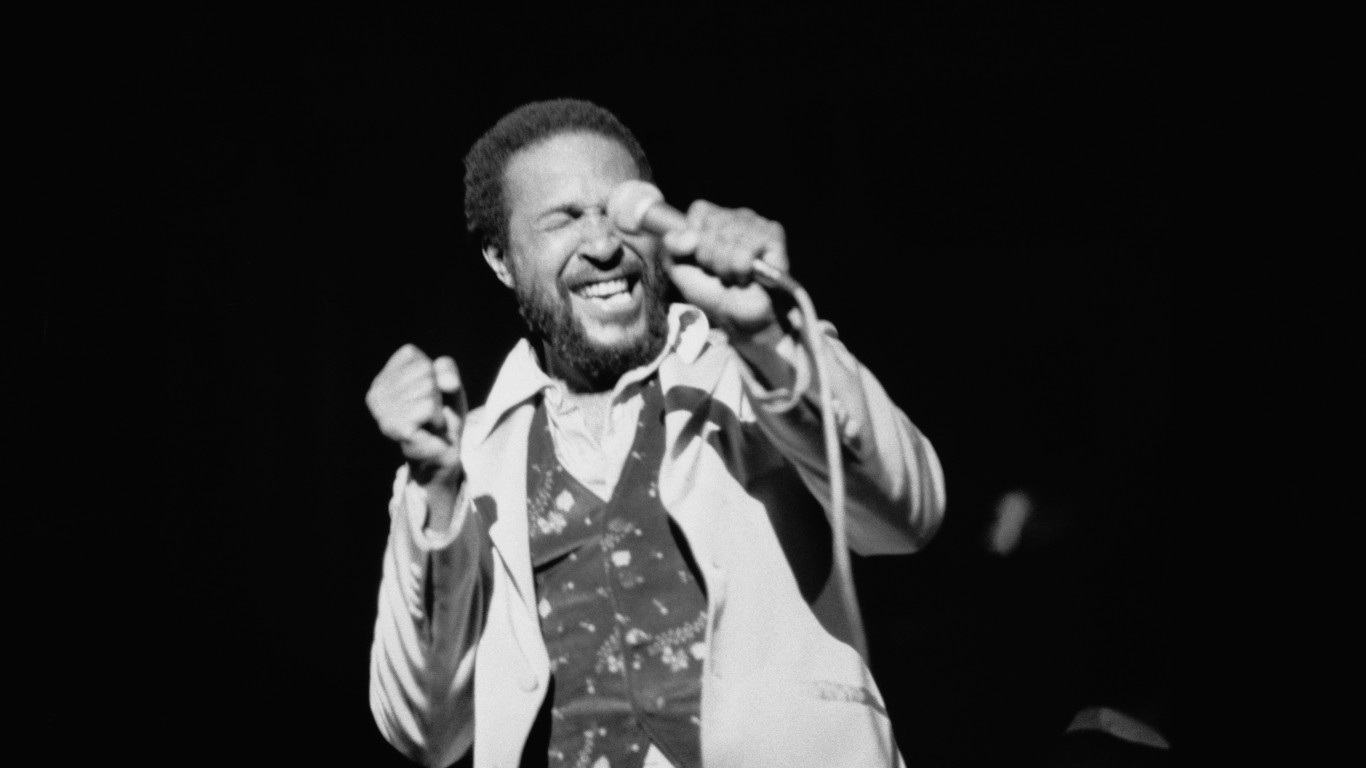
Marvin Gaye
> Death: Shot in 1984
> Genre: Motown, pop
> Instrument: Vocals
One of the most beloved and prolific Motown artists (“I Heard It Through the Grapevine,” “What’s Going On,” “Let’s Get It On,” etc.) Gaye was shot to death by his father, Marvin Gay [sic] Sr. at the family home in Los Angeles on the night before his 45th birthday. Intervening in an argument between his Gaye is said to have physically attacked his father, who responded by shooting Gaye in the heart. Gaye’s brother Frankie later claimed that, with his dying breath, Gaye had confessed that he’d wanted to kill himself but couldn’t do it so goaded his father into pulling the trigger.
[in-text-ad-2]
Jaco Pastorius
> Death: Beaten to death in 1987
> Genre: Jazz, fusion, pop
> Instrument: Bass
A virtuosic electric bassist, known for his game-changing work with the fusion jazz group Weather Report and with Joni Mitchell, Pastorius developed the habit of starting bar fights, and apparently enjoyed being beaten up. One night in Florida, he tried to force his way into a club, reportedly kicking in the front door. The bouncer (some sources say the manager), a martial arts expert, stopped him, in the process injuring him badly and sending him into a coma from which he never emerged.
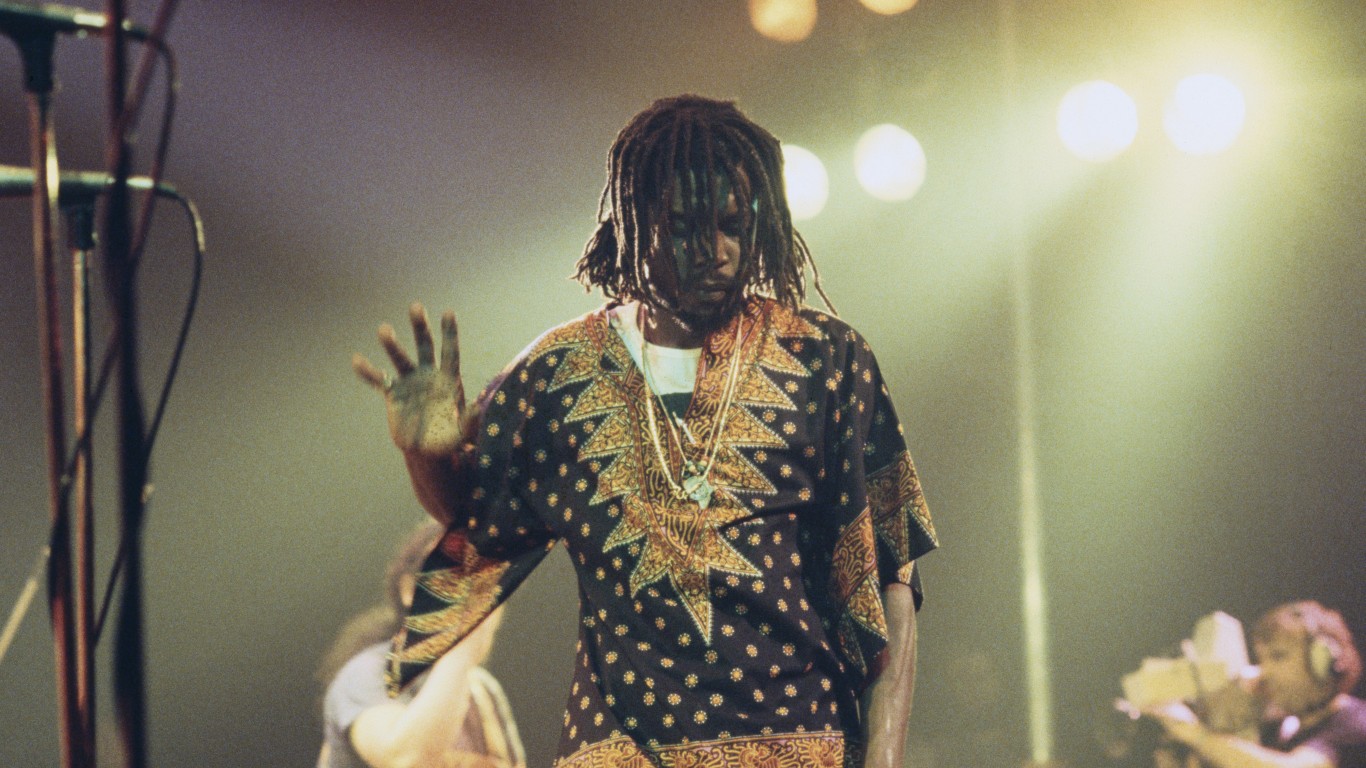
Peter Tosh
> Death: Tortured and shot in 1987
> Genre: Reggae
> Instrument: Vocals, guitar, keyboards
An early reggae star as part of The Wailers — along with Bob Marley — Tosh was a singer and multi-instrumentalist who went on to have a successful solo career. He was killed when three men — led by an ex-con whom Tosh had once befriended — burst into his home in Kingston, Jamaica, demanding money. When Tosh denied having any at hand, the men tortured him, as well as several of his friends and associates who had come by the house and were also taken captive. The invaders eventually opened fire, killing Tosh and two of his friends and wounding four others.
[in-text-ad]

Blaze Foley
> Death: Shot in 1989
> Genre: Country, Americana
> Instrument: Vocals
A legendary figure on the Austin music scene, singer-songwriter Foley was the subject of a 2018 biopic called “Blaze,” directed by Ethan Hawke, and was the title character in the Lucinda Williams song “Drunken Angel.” Foley was shot by the son of a close friend after he’d accused the young man of stealing his father’s welfare and pension checks.
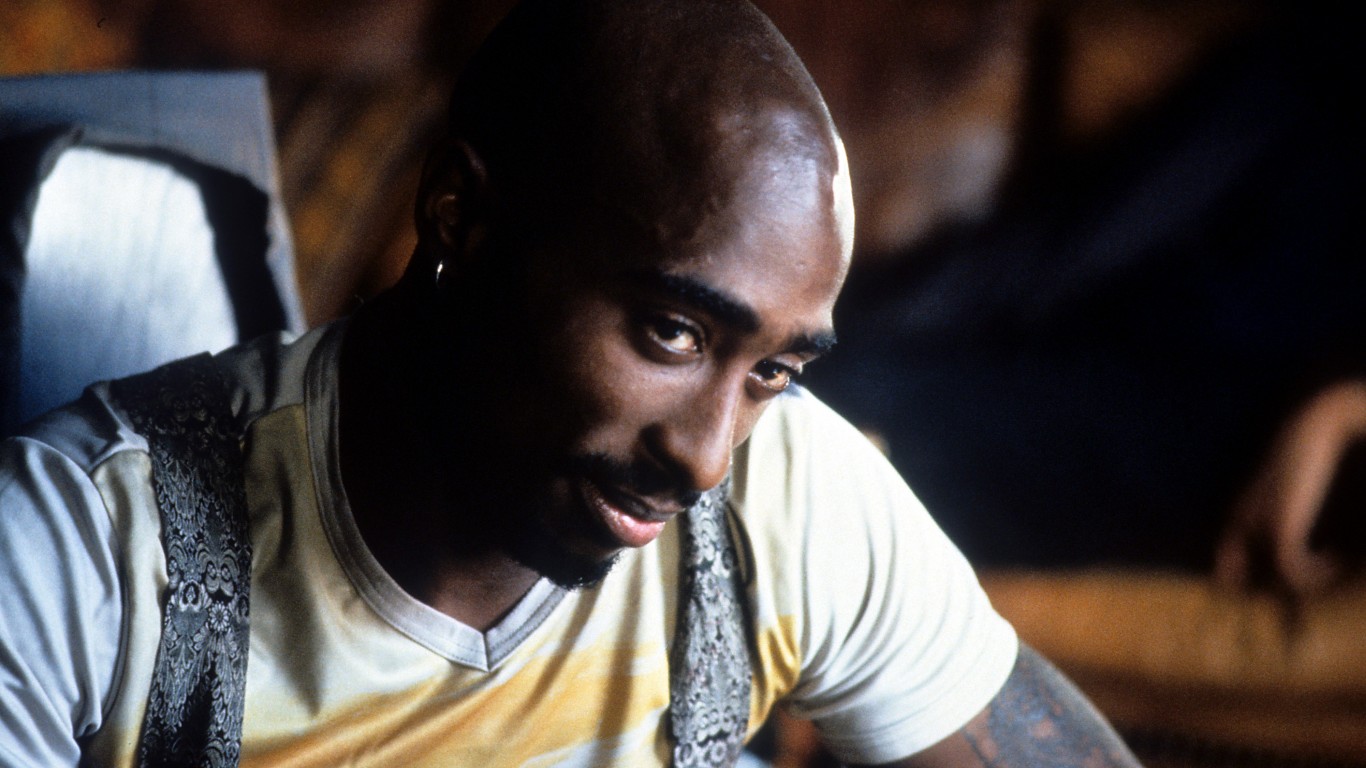
Tupac Shakur
> Death: Shot in 1996
> Genre: Rap, hip-hop
> Instrument: Rapping, vocals
A rapper with an almost mythic posthumous reputation and a promising actor, Shakur is one of the best-selling recording artists in history. Embroiled in a hip-hop rivalry that pitted East Coast and West Coast artists and labels against each other, Shakur was killed in a drive-by shooting in Las Vegas. His killer has never been caught.
The Notorious B.I.G.
> Death: Shot in 1997
> Genre: Rap, hip-hop
> Instrument: Rapping, vocals
The Notorious B.I.G., also known as Biggie Smalls (and born Christopher Wallace) was a major hip-hop star, named Rapper of the Year by Billboard in 1995. He and Tupac Shakur (see above) had been friends, but were feuding in the mid-1960s as part of an East Coast-West Coast hip-hop rivalry. Wallace was briefly suspected of having had a hand in Shakur’s death, and six months after the latter was shot, Wallace himself was killed in a drive-by shooting, in Los Angeles.
[in-text-ad-2]

Jaki Byard
> Death: Shot in 1999
> Genre: Jazz
> Instrument: Piano
An elder statesman of avant-garde and post-bop jazz with an encyclopedic knowledge of piano styles, as well as a teacher at the New England Conservatory of Music, Byard was shot at the age of 76 at his home in Queens under mysterious circumstances. There was no indication that anyone else had been in the room with him when he died and the gun used was never found.
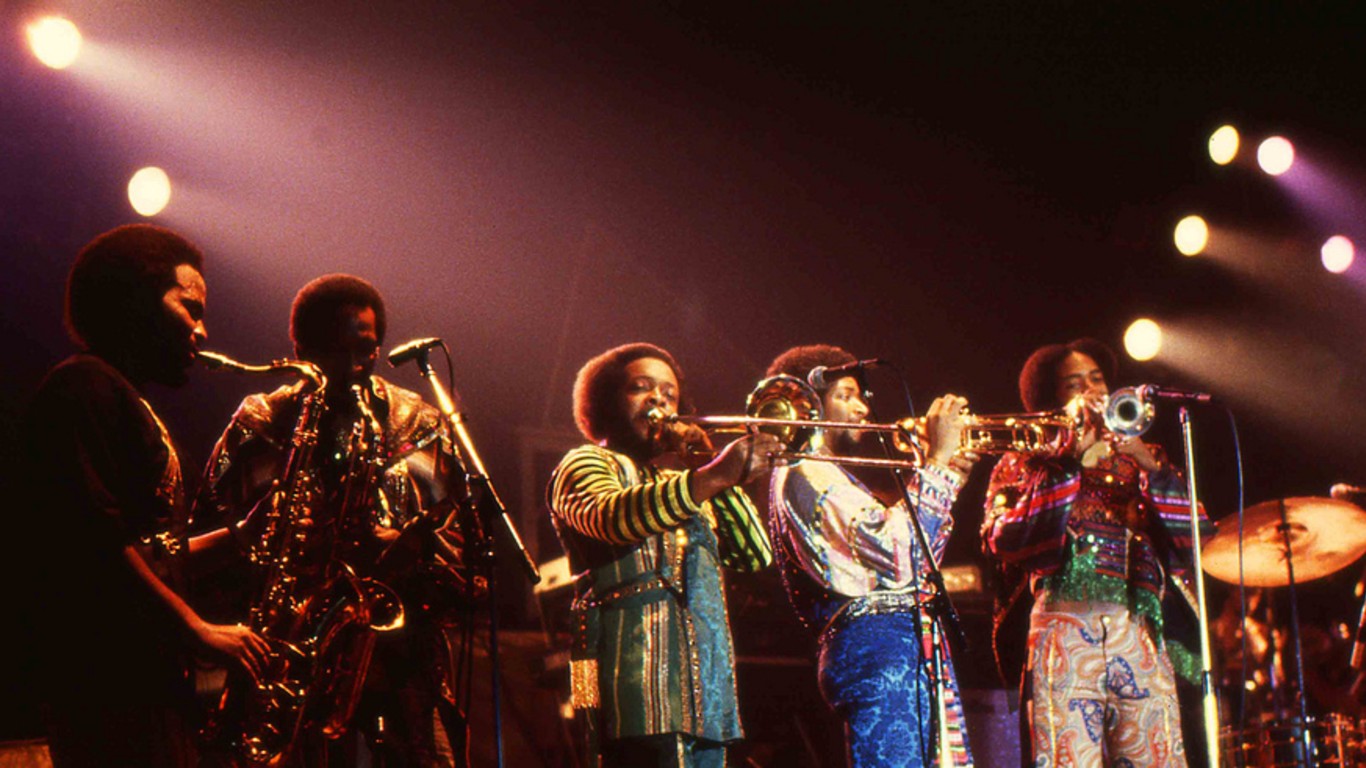
Don Myrick
> Death: Shot in 1993
> Genre: R&B, soul, jazz
> Instrument: Soprano, alto, and tenor saxophones
A protean saxophonist whose work ranged from avant-garde jazz with the Association for the Advancement of Creative Musicians to pop music with Phil Collins and Earth, Wind & Fire, Myrick was killed by a Santa Monica police officer during a narcotics stop. Myrick reportedly took out a butane lighter, which the cop mistook for a gun. He fired a single bullet into the saxophonist’s chest.
[in-text-ad]
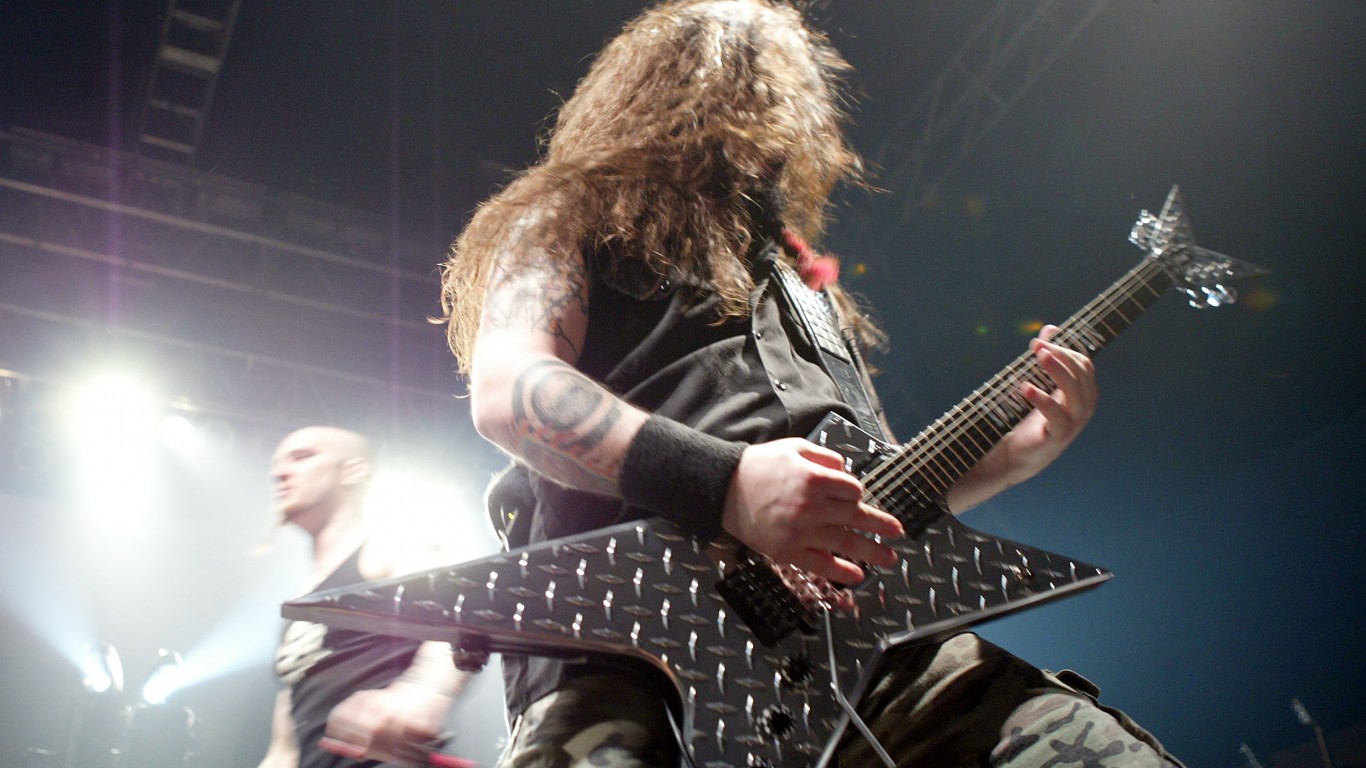
Dimebag Darrell
> Death: Shot in 2004
> Genre: Heavy metal
> Instrument: Guitar, vocals
A powerhouse guitarist for Pantera and other metal groups and a guest artist with such bands as Anthrax, Nickelback, and Godsmack, Darrell (born Darrell Lance Abbott) was shot to death by a disaffected fan with a semi-automatic pistol on stage at a club in Columbus, Ohio. A security guard, another fan, and a club employee were also killed, and three others were wounded before a police officer killed the assailant.

Valentín Elizalde
> Death: Shot in 2006
> Genre: Regional Mexican
> Instrument: Vocals
A young star of the crossover Latin musical style called Regional Mexican, Elizalde was known for his narcocorridos, songs romanticizing drug lords. Not all these songs were appreciated by their subjects. Elizalde, his driver, and his assistant were shot after he’d performed in the Mexican state of Tamaulipas, possibly because one of his songs had offended members of the feared drug cartel Los Zetas.
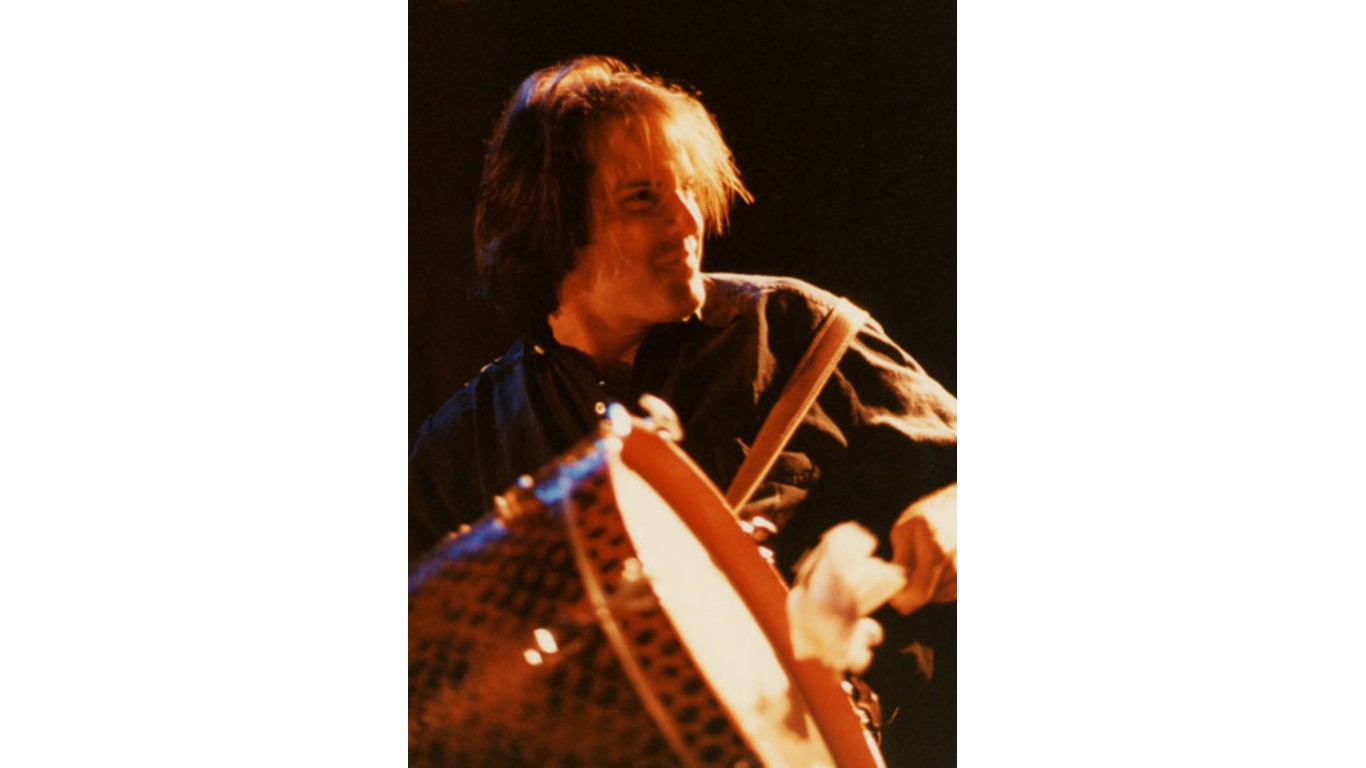
Bryan Harvey
> Death: Beaten and stabbed in 2006
> Genre: Power pop, alternative
> Instrument: Vocals, guitar
The co-founder of the Virginia-based alternative duo House of Freaks, Harvey was killed, along with his wife and two young daughters, during the so-called Richmond Spree Murders of 2006. These were seven homicides, tied to home invasions, perpetrated by an uncle-and-nephew team. The Harveys were tied up, beaten with a hammer, and stabbed before their throats were slashed.
[in-text-ad-2]

Winston Riley
> Death: Shot in 2011 (died 2012)
> Genre: Reggae
> Instrument: Vocals
Though less well-known as a performer than some of his contemporaries in the reggae scene, Riley was a successful producer of other artists. In 2009, his studio was firebombed, and over the next year-and-a-half he was attacked several times for unknown reasons, surviving both a stabbings and a bullet wound. He was shot again in November 2011, and lingered in the hospital until succumbing in January of the following year.

Natalia Strelchenko
> Death: Beaten to death in 2015
> Genre: Classical
> Instrument: Piano
A Russian-born concert pianist, known for her interpretation of Franz Liszt’s technically challenging “Transcendental Études” and as an instructor and accompanist at the Saint Petersburg Conservatory, Strelchenko died from neck and head injuries at her home in Manchester, England. Her husband and manager, a Norwegian double-bass player named John Martin, was charged with her murder.
[in-text-ad]
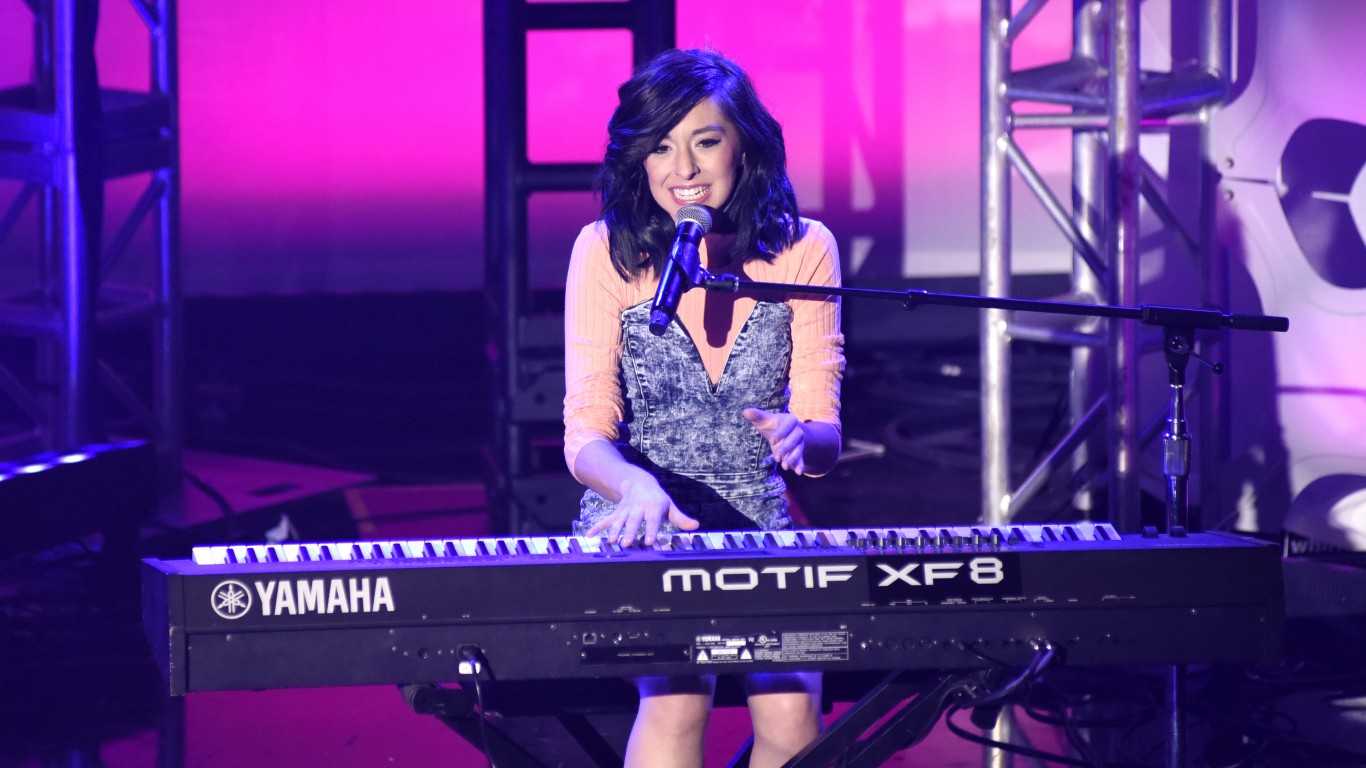
Christina Grimmie
> Death: Shot in 2016
> Genre: Pop
> Instrument: Singer, YouTuber
Best-known for her cover versions of pop songs on YouTube — on which she gained more than two million subscribers — Grimmie also released an EP and an album of her own and appeared on “The Voice.” While she was signing autographs after a concert in Orlando, a fan approached her and fired four bullets into her head and chest. Police later said that the fan, who killed himself at the scene, had shown an “unhealthy and unrealistic infatuation” with the singer.
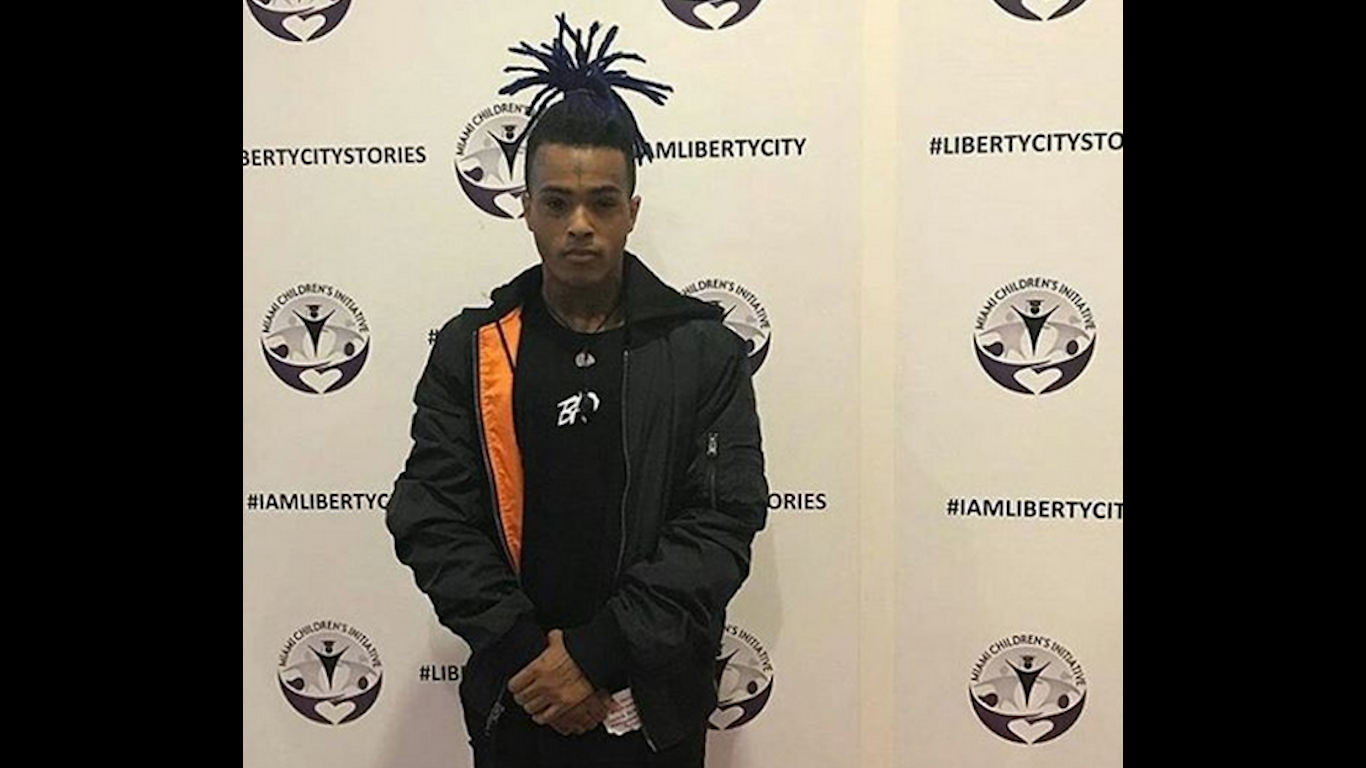
XXXTentacion
> Death: Shot in 2018
> Genre: Rap, hip-hop
> Instrument: Rapping, vocals
Known for his emo- and grunge-inflected rap songs (he called Kurt Cobain his biggest influence), the artist born Jahseh Ricardo Onfroy was frequently in trouble with the law, being charged at various times with drug and gun possession, assault, robbery, home invasion, and other crimes. He was shot to death as he left a motorcycle dealership in Deerfield Beach, Florida. Two men approached his car, reached in and grabbed a Louis Vuitton bag containing $50,000, fired at him, and fled.
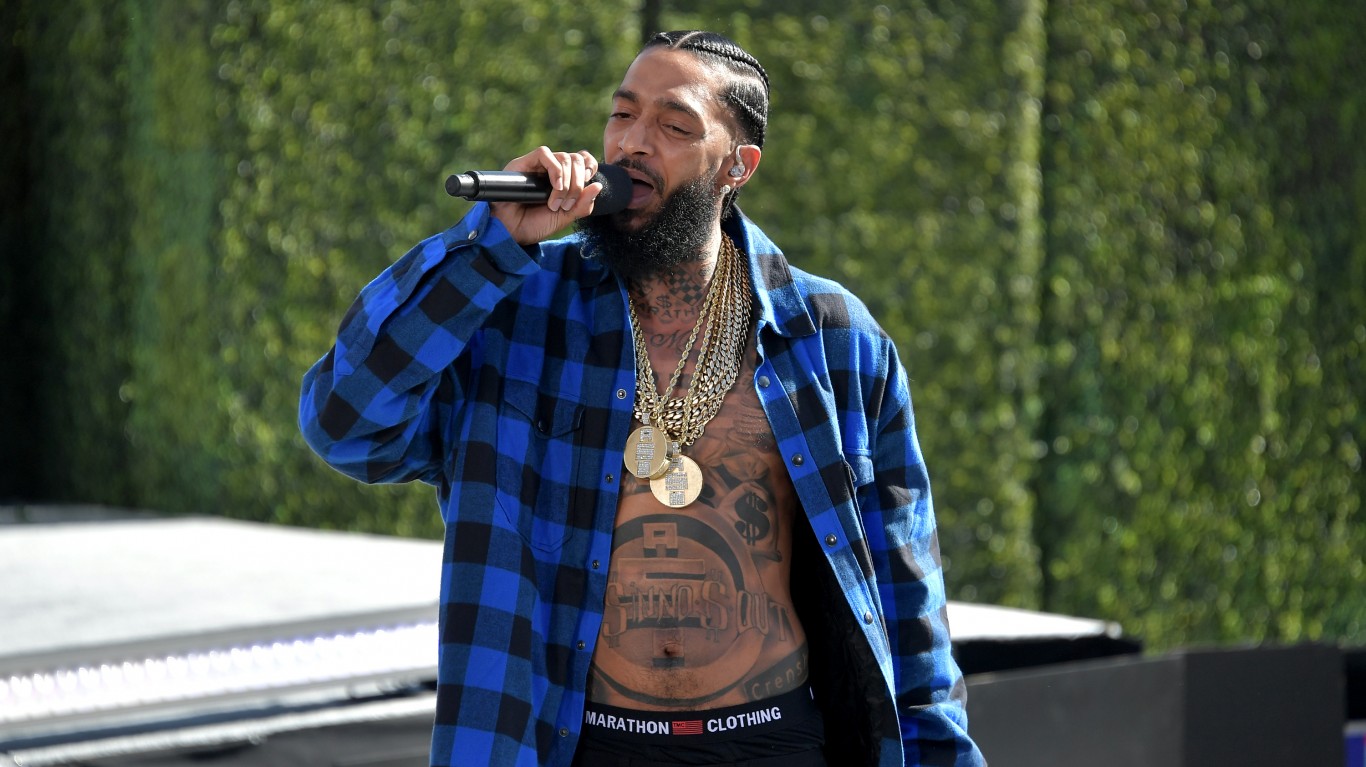
Nipsey Hussle
> Death: Shot in 2019
> Genre: Rap, hip-hop
> Instrument: Rapping, vocals
Ermias Joseph Asghedom, who performed as Nipsey Hussle, was known not only for his music (including two songs given posthumous Grammy Awards) but also for his social activism and business ventures, including a co-working space called Vector 90 and a store called Marathon Clothing. It was outside the store that the rapper was shot multiple times, by a man he apparently knew. Though some sources claimed the killing was gang-related, others say it was an undisclosed personal matter.
[in-text-ad-2]
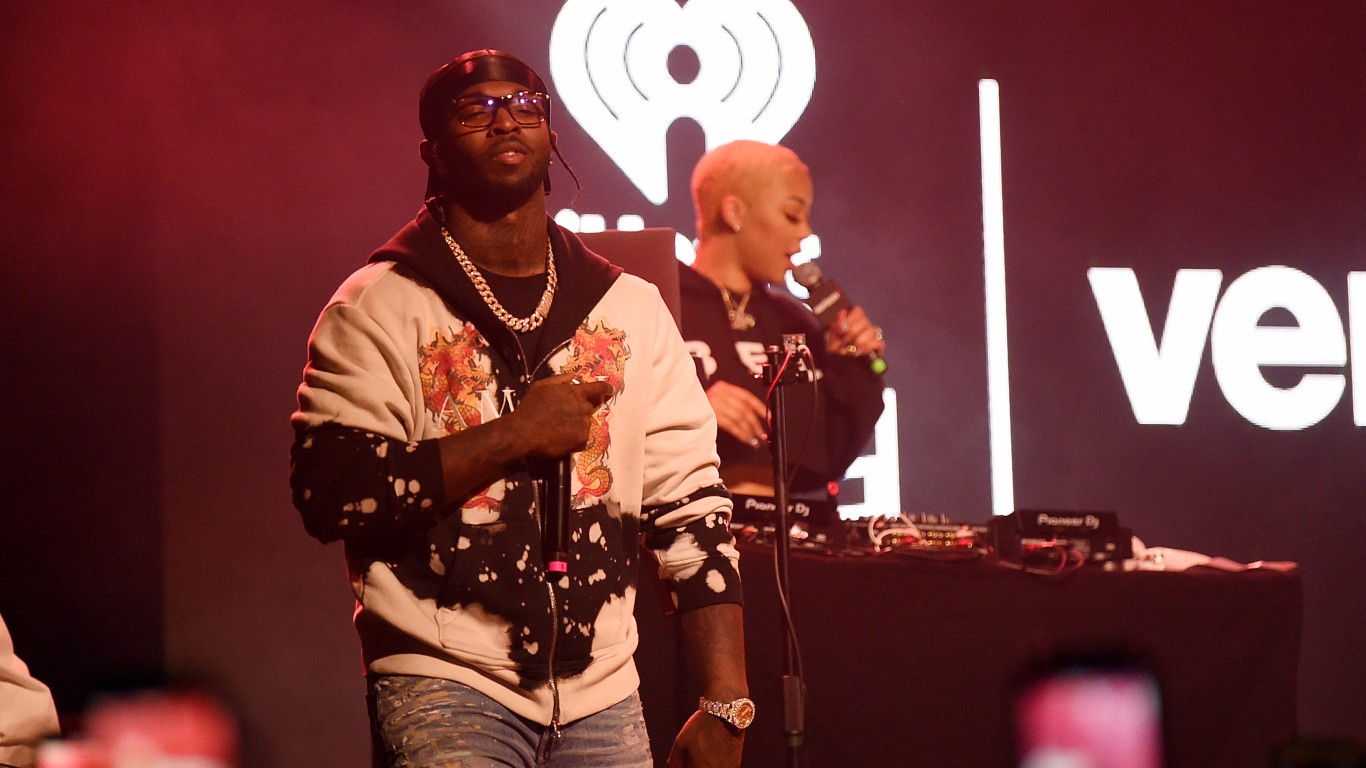
Pop Smoke
> Death: Shot in 2020
> Genre: Rap, hip-hop
> Instrument: Rapping, vocals
Bashar Barakah Jackson — Pop Smoke professionally — was a rap star on the rise, an exponent of the percussive style known as Brooklyn drill. Just 12 days after his early 2020 mixtape “Meet the Woo 2” debuted at No. 7 on the Billboard 200, Jackson was fatally shot in a home invasion at a house in Hollywood rented from Teddi Mellencamp Arroyave, a star of “The Real Housewives of Beverly Hills” and the daughter of rocker John Mellencamp.
In 20 Years, I Haven’t Seen A Cash Back Card This Good
After two decades of reviewing financial products I haven’t seen anything like this. Credit card companies are at war, handing out free rewards and benefits to win the best customers.
A good cash back card can be worth thousands of dollars a year in free money, not to mention other perks like travel, insurance, and access to fancy lounges.
Our top pick today pays up to 5% cash back, a $200 bonus on top, and $0 annual fee. Click here to apply before they stop offering rewards this generous.
Flywheel Publishing has partnered with CardRatings for our coverage of credit card products. Flywheel Publishing and CardRatings may receive a commission from card issuers.
Thank you for reading! Have some feedback for us?
Contact the 24/7 Wall St. editorial team.
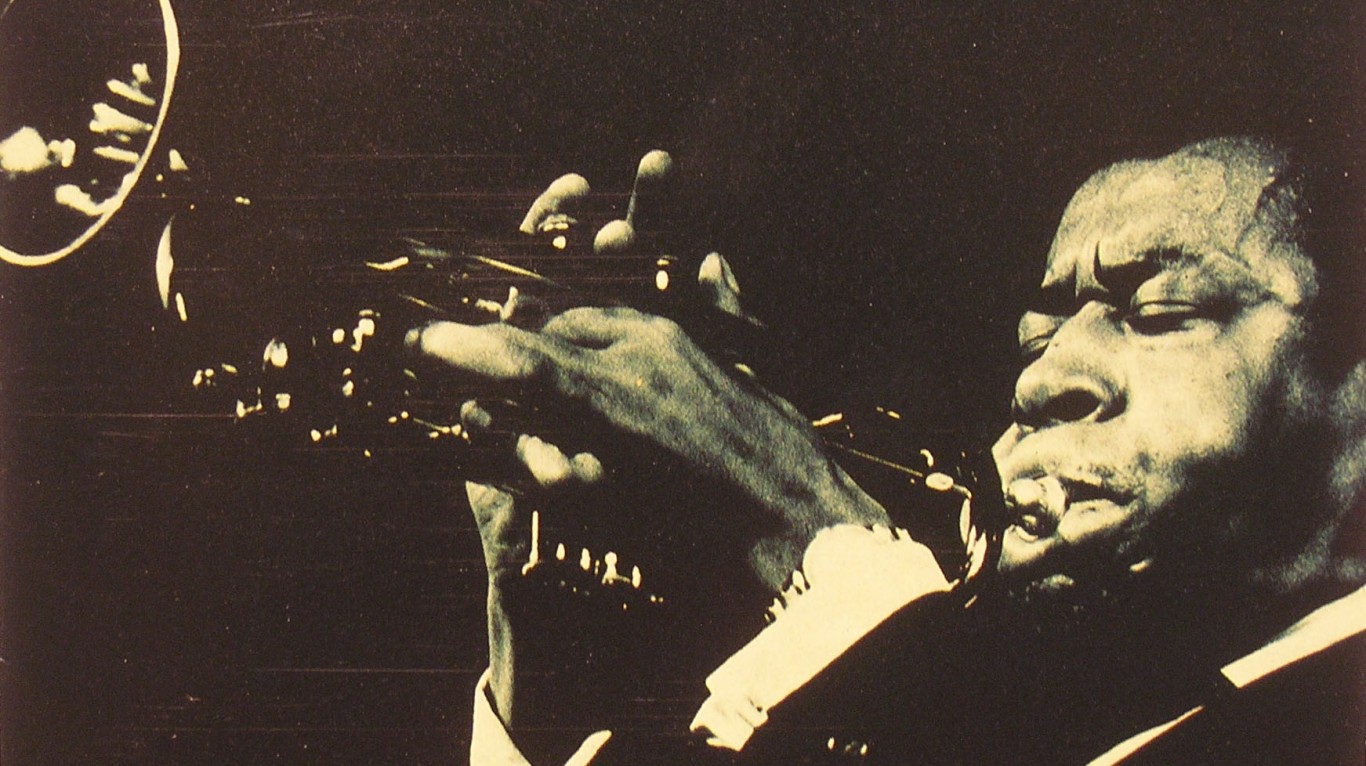
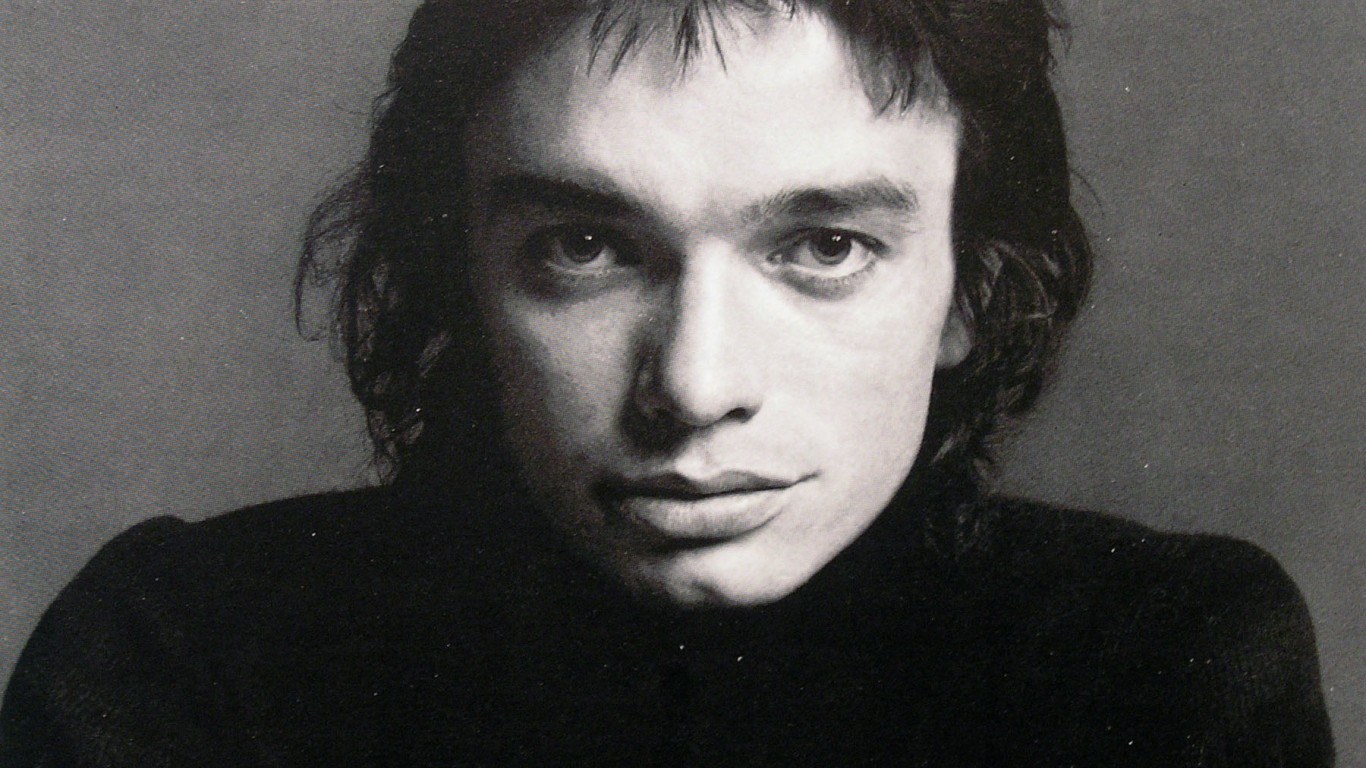
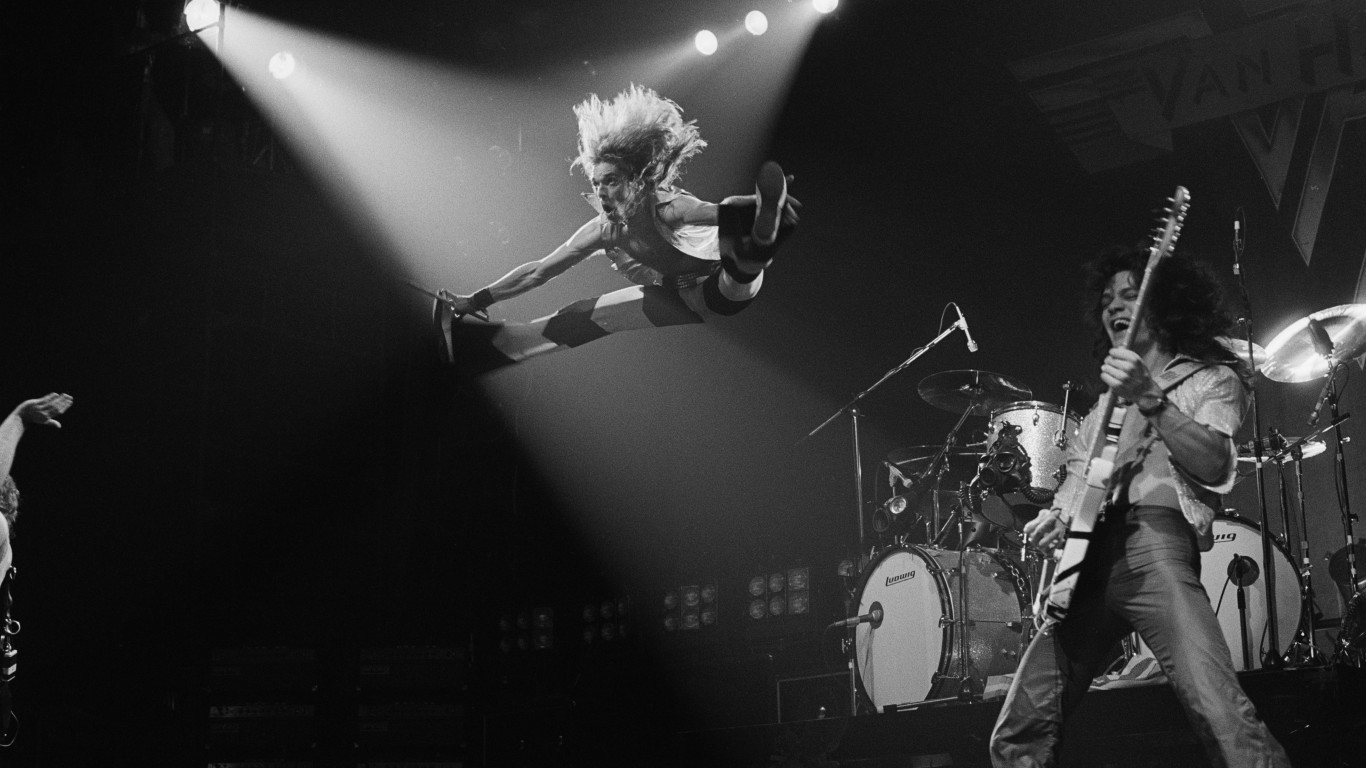 24/7 Wall St.
24/7 Wall St.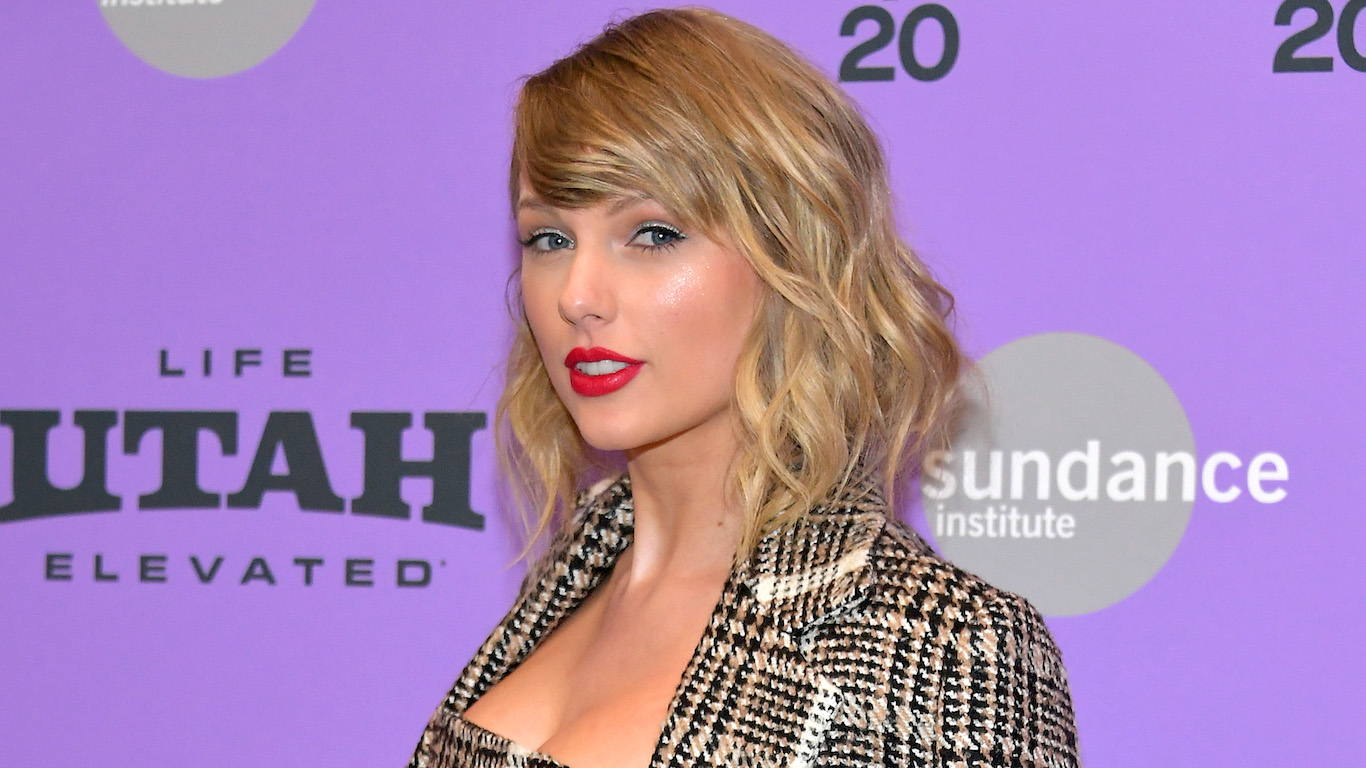 24/7 Wall St.
24/7 Wall St.